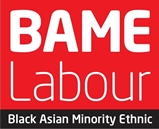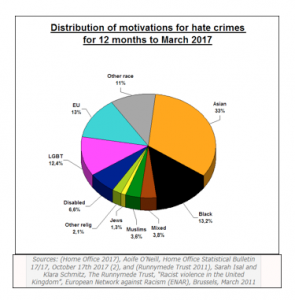The Labour Party Democracy Review – a BAME Labour submission

Submission to the Labour Party Democracy Review concerning the role of the BAME group
Submitted by Dr Alan Maddison
Member of BAME Labour, Associate Member of JVL
January 2017
1. The role of BAME Labour is best defined in the context of a broader Labour Party strategy to fight all forms of abuse and discrimination.
It is difficult to define the future role of BAME Labour in isolation. The Labour Party should first build an overall strategy to tackle all forms of prejudice, abuse and discrimination. This could include sexual harassment, incidents involving LGBT and disabled victims, as well as those incidents motivated by racial or religious prejudice.
Whilst recognising the specificities of a BAME group, such a Labour Party overall strategy should provide the framework for individual groups, such as BAME, to develop their own plans. It should offer priorities, coherence between group actions and identify synergies.
The Labour Party priorities should not be governed solely by lobbies, victim group pressure or media coverage, but primarily by unmet needs as objectively measured in UK society.
Prioritisation
One important factor will be the prevalence and distribution estimate for the 80,393 hate crimes reported to police, as illustrated below (1, 2).
As illustrated above we see that BAME victims are the largest group in the hate crime category and we can appreciate the relative shares for other victims groups.
Of course hate crimes are under-reported and are just the tip of the iceberg, but relative population sizes, and measures of specific prejudices, indicate that this illustration should provide a general guide to resource allocation for fighting more prevalent non-criminal abuse and discrimination too. Hate crime data do not include the larger group of crimes motivated by gender. These include attacks on women such as in domestic abuse, rape and sexual abuse, for which BAME victims have a disproportionate share.
Priorities should also be influenced by how much is being done already (or not) to support specific victim groups. For instance, the Jewish charity, Community Security Trust, and the Muslim charity, TellMAMA, already encourage reporting of hate incidents and provide advice and support. Other victim groups may not have such well-organised support and they will perhaps need more help from Labour in having this established.
Synergies and Coherence
An overall Labour Strategy will also identify synergies and useful collaborations in developing and implementing different victim group action plans. For instance, such aims as encouraging increased reporting of abuse or discrimination (to police, political parties, schools, workplaces etc.) will be shared between many support groups. So by measuring the effectiveness of different approaches to improved reporting, and guiding their implementation, the Labour Party will provide a valuable service to all.
Similarly long-term programmes to reduce the underlying prejudices leading to abuse will benefit from a shared approach. Although the stereotypes may vary between victim groups, the recommended approaches to reducing such prejudices, or their manifestation, are similar (3). Long-term programmes require significant investment in design, planning and follow-up, but will once more benefit all victim support groups.
Such interaction between different support groups within the Labour Party will provide a more effective and coherent strategy.
2. BAME Labour and the Labour Party need to organise cross-party co-operation
The Government published its Action Plan to fight Hate Crime was written in July 2016, and Labour can build on areas of common ground, as well as challenge areas that are lacking.
As an example, in 2016 the European Commission against Racism and Intolerance, the Equality and Human Rights Commission, and the UN have publicly criticised certain right-wing politicians and the media for inciting hatred towards EU Immigrants, Muslims and even our Disabled (4, 5). Such narratives feed the prejudices in our society that drive abuse and discrimination, and yet this problem is not adequately addressed in the Government plan. The Labour Party needs to challenge this for all victim groups, including BAME Labour.
In addition, any campaign by the Labour Party, or by an affiliated support group such as BAME Labour, may have limited impact on influencing right-wing voters, yet that is where the highest prevalence of racial prejudice exists (6).
So it would be useful to have right-wing political party involvement to take advantage of their probable greater influence over their own voters. This is an important area for a cross-party approach, both for BAME Labour and the broader Labour overall strategy.
The perpetrators of religious and racist abuse seem to come largely from the Far Right. Between 60-70% of anti-Semitic or Islamophobic incidents have been attributed to the Far Right by the CST and TellMama charities (7). Such perpetrators may be more deterred by the risk of being charged and convicted for their abuse. If the Labour Party and BAME Labour wish to encourage increases in reporting of hate crimes by victims and witnesses and subsequent convictions, then once more a cross-party approach seems sensible, and one involving all ethnic minority support groups too.
3. Eliminate racial prejudice amongst a small minority of Labour members but avoid continuing to damage the reputation of the Labour Party
We expect racial prejudice to be lower amongst Labour members than those in the Tory or UKIP Parties, as a reflection of voter patterns. Racial prejudice has been reported to be almost twice as prevalent amongst Tory than Labour voters (6). However, some racism, antisemitism, and Islamophobia will exist in a minority of the 550 000 Labour members and needs to be reduced or eliminated.
Patterns of abuse allegations in Labour are the inverse of that anticipated.
The distribution pattern of related racist abuse from Labour members should be similar to that for our wider society as illustrated above in Figure 1. From this data we can estimate that:

The Labour complaints and disciplinary process is rather opaque, and the statistics on suspensions/expulsions are kept confidential. Those writing an overall Labour Strategy need to examine these suspensions/expulsions data and past procedures carefully. The impression given is that ratio of reported abuse by victim group is the inverse of that expected.
In fact, a relentless focus on anti-Semitism allegations is what has been predominantly communicated to the media by certain Labour MPs ever since Jeremy Corbyn was elected as our Leader. This includes unacceptable leaks to the press of confidential details of Labour members from some in Labour HQ, and ridiculous comments such as No safe place in Corbyns Labour for Jews from one Labour MP.
One in three voters said they would not vote for Labour because they think it has a problem with antisemitism (8). Yet this is contradicted in the HASC report into Antisemitism, October 2016, as illustrated below:

This does raise the question about whether a genuine fight against abuse is driving the complaints procedures within Labour. BAME Labour and the Labour Party need to take steps to ensure that the Labour Partys reporting and disciplinary procedures are fit for purpose for at the moment this does not seem to be the case.
The impression of many Labour members is that false or exaggerated allegations of antisemitism have been used to undermine Jeremy Corbyn, and to silence support for Palestinian human rights. This has nothing to do with the genuine fight against antisemitism which may exist in a small minority of members.
This was clearly exposed in the televised Al Jazeera documentary The Lobby, where individuals from the Labour Party or its affiliates were filmed collaborating with a staff member of the Israeli Embassy planning to take down supporters of Palestinian human rights. We understand that the new chairman of the FAC, charged with its implementation, has now shelved the inquiry into The Lobby, initially demanded by Jeremy Corbyn. If this is true then the Labour Party really needs to conduct its own inquiry urgently. Such manipulations exposed in The Lobby really do damage the reputation of the Labour Party, significantly reduce our chances of election victory, and they also undermine the genuine fight against antisemitism.
It seems that the system of abuse reporting and discipline in the Labour Party needs urgent review, and the Chakrabarti report recommendations, including those for transparency and natural justice, need to be adopted without further delay. In addition, if we wish to improve diversity of Labour, this sort of smear campaign will frighten away individuals from minority groups, as it may already have done.
The Labour Party needs to guard against further political manipulations. Safeguards need to be in place to avoid any programme to tackle racial prejudice against BAME victims being manipulated to damage Labour as has happened, with such negative electoral consequences, for the Party (8) regarding these antisemitism allegations.
This is not to deny that antisemitism, or other forms of racism or prejudice exist in Labour, nor that they need to be eliminated. Indeed, a participative educational programme of awareness and exchange to reduce prejudice (sexist, racial or religious) amongst Labour
BAME Labour should play a central role in the design and implementation of such programmes. If we give BAME members more responsibilities, as suggested in the Chakrabarti report, maybe we could bring their membership share back up from the current unacceptable low of 4% (9).
We do not anticipate that the Tories or UKIP will embark on such internal programmes to reduce prejudice or abuse from their members, so we need steps to ensure that any Labour programme is not used by our opponents against us once more.
This proposal involves bringing BAME Labour together with supporters of other victim groups, and all other Labour members. Not only will this contribute to a coherent and synergistic Labour strategy, but bringing different groups together with equal status and shared goals, has also proven to be the most effective approach towards eliminating prejudice and discrimination.
References
1. Aoife ONiel, Hate Crime, England and Wales, 2016/17, Home Office Statistical Bulletin 17/17, 17th October 2017.
2. Sarah Isal and Klara Schmitz, The Runnymede Trust, Racist Violence in the United Kingdom, European Network against Racism (ENAR), Brussels, March 2011.
3. Maureen Mcbride, What works to reduce prejudice and discrimination? A review of the evidence. Scottish Centre for Crime and Justice Research, October 2015.
4. Lizzie Dearden, Independent 8th October 2016
5. BBC News 26th August 2016
6. Nancy Kelly et al., Racial Prejudice in Britain Today NatCen Social Research, September 2017.
7. Antisemitic Incidents Report, Community Security Trust, 2017.
8. Ben Kentish, Independent 30th March 2017
9. Tim Bale, Inside Labour’s massive membership base, Labour List, 6th October 2017
Dr Alan Maddison.
Labour Party Membership no. L1253894
Member of BAME Labour, Associate Member of JVL

